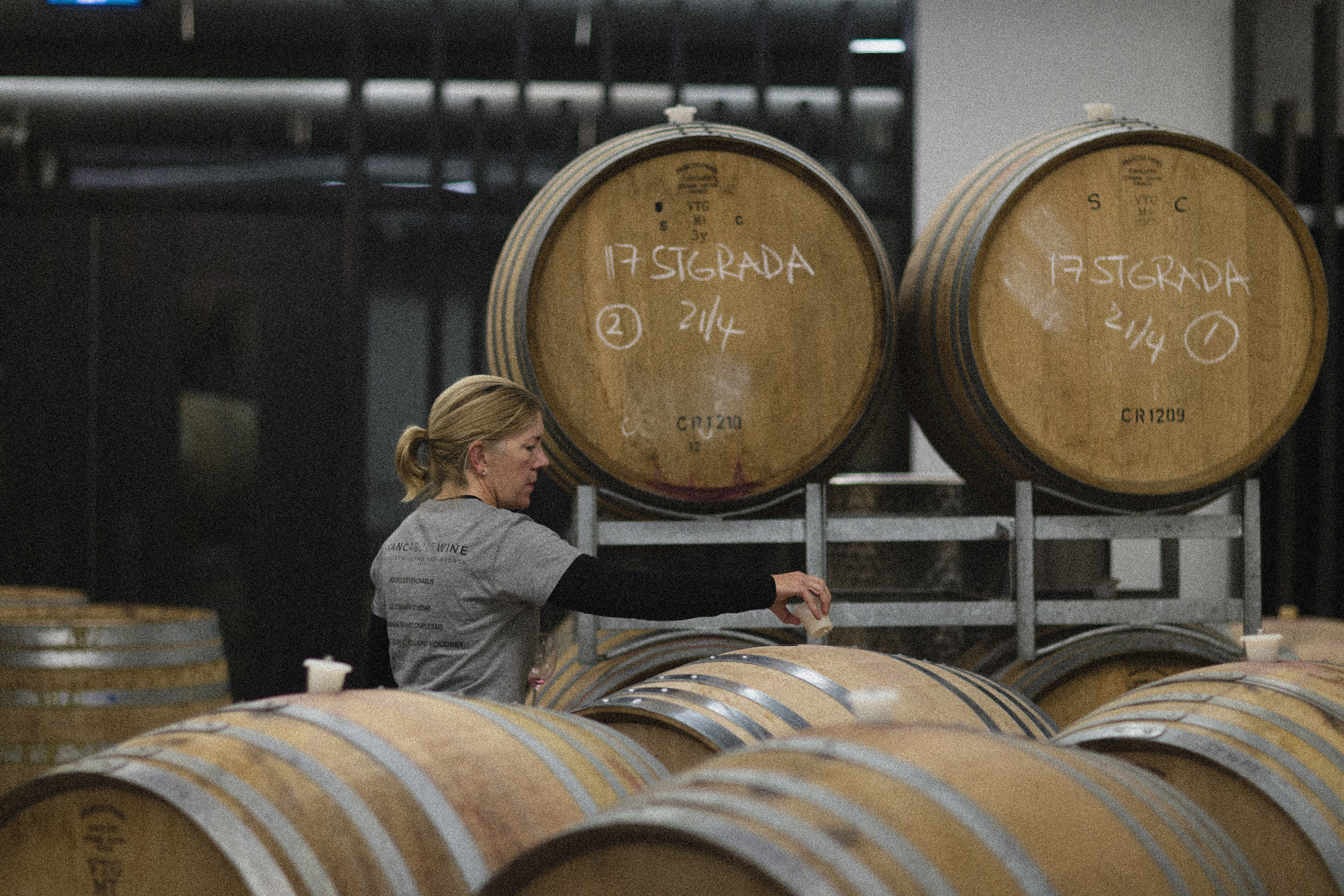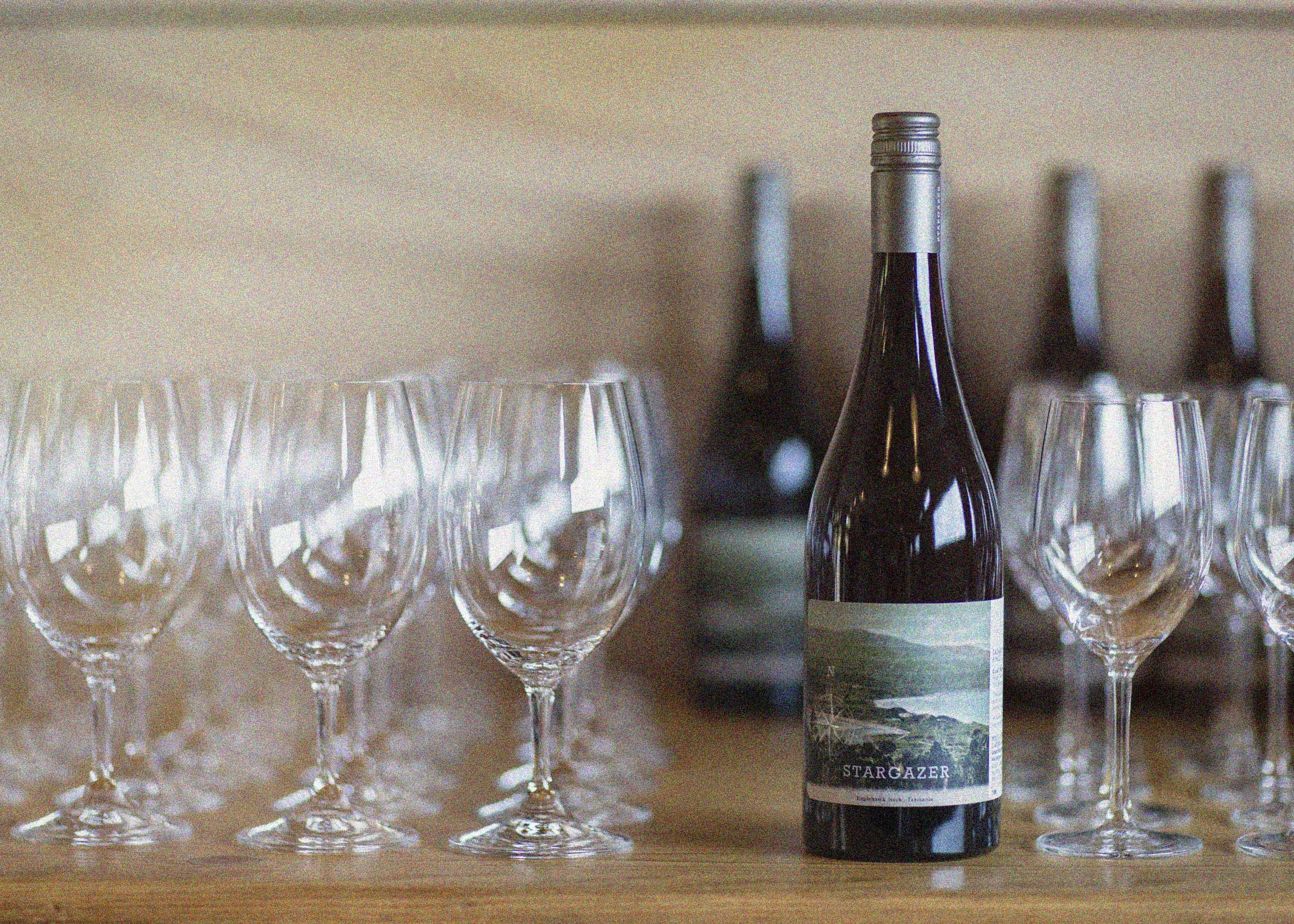Women in wine: Samantha Connew's success
Women play an integral role in Tasmanian agriculture and they are often quiet achievers. But that is about to change as our series of articles celebrates local female trail blazers.
THE woman behind Stargazer Wines is Samantha Connew, a highly regarded winemaker, vineyard owner and wine judge.
While her journey was not straight forward, agriculture and viticulture is what she loves and something she is very good at.
Samantha established Stargazer Wines in 2012, producing high-quality wines from her vineyard in the Coal River Valley.
She does not come from a winemaking or farming background; she grew up in a small New Zealand town with aspirations in art history.
“Back in the day, women weren’t encouraged in terms of science so when I went to university I did an arts degree in English literature and political science,” she said.
“Looking back at it now, I really wish I’d done a bachelor of science, but that’s not how it worked out.”
Throughout university, she worked in hospitality, spending eight years at a wine bar in Christchurch.
“At that bar almost all wines were poured by the glass, so we got to try a lot of them, and that’s how I got into wine.”
She then returned to university for a postgraduate degree in viticulture and oenology.
This led her to various vintages, first in the US and later in regions such as Margaret River, Sicily, and the Hunter Valley.
In 1999, she took a winemaker role in Adelaide and stayed for a decade.
She worked with the Australian Wine Research Institute before moving to Tasmania, which eventually lead to the birth of Stargazer in 2012.
“It was only ever meant to be a little side project but the response to the wines was really good so it all sort of started from there.”
By 2016, Samantha purchased her current 11ha property in the Coal River Valley, with 5ha under vines and plans for expansion.
The wines she produces include Pinot Noir, Riesling, Pinot Gris, a Pinot Blanc blend, and a Pinot Meunier/Pinot Noir/Gamay blend, along with her latest, a Shiraz Pinot Noir blend.
Each vintage, Stargazer produces around 3000 dozen bottles.
When asked what shaped her approach to winemaking, she said it was the cumulative experiences.
“I’ve been really lucky since the early 2000s to have done quite a lot of wine-show judging. It has been a big part of my career and helped enormously in terms of how I think about wine and how I assess it.”
Recently she returned from judging at a New Zealand wine show and speaking at a symposium focused on Tasmanian Chardonnay.
“It’s great to get out and meet people and spread the message about Tasmania and what a special place this is to grow grapes and make wine.”
Despite her success, Sam has faced challenges along the way.
She recounted situations in the past where male growers had refused to work for her because she was female, despite the fact she was a senior winemaker.
“I think if they had that kind of approach now they wouldn’t be in business,” she said.
“I tend to look at these kinds of things as obstacles to overcome rather than barriers, it’s really important to differentiate between those two.”
She operates Stargazer without business partners or investors, funding everything herself.
“It’s been good in a way, because it’s limited the scale I can grow at.”
Looking ahead, Sam plans to expand her vineyard and open a small, appointment-only tasting room, with constructions to begin later this month.
“That's going to take 10 months to build and that’s the big focus for the next year.”
“I’m also in discussions with my neighbour about purchasing a block of her land next door, and if I do expand the vineyard, I’d love to put some Shiraz in,” she said.
“After that I think it’ll be a case of really consolidating what we do and getting better at it.”
Sam’s favourite part of her work is being out in her vineyard.
“The reception here is terrible, so I can kind of disappear for three days a week and just switch off – this is definitely my happy place.”
Sam says the Coal River Valley is gaining recognition among vineyard owners and distillers.
She is also noticing a shift toward lower-alcohol wines, seen especially in Chardonnay.
“They are far less oaky and less alcoholic than they used to be 30 years ago,” she said, adding that many wine types are becoming less tannic and easier to drink.
“I think the exciting thing is—and it's kind of a double-edged sword— people are drinking a lot less than they used to, but they're willing to spend more to drink better, which I think is a good thing.”
"Wine is a different commodity from spirits and beer because we only get one chance at it each year.
"People understand where their wine comes from; it’s not something they mindlessly grab off the shelf at Dan Murphy’s”
Sam has also noticed a growing interest in the natural wine movement, which encourages winemakers to experiment with alternative techniques, such as using different fermentation vessels like concrete or ceramic and leaving the grape skins in contact with the wine for a few hours before separating them.

“There’s so much flavour in the skins, so I really want to extract as much of that flavour as I can,” she said.
Besides grapes, Sam also grows olives, raises chickens and sheep (to manage grass in the vineyard), and has a beehive.
“We’re trying to avoid being a monoculture, and for this to be a healthy environment for grapes to grow in, but also just something that's just a little bit more interesting to work in as well.”
She has harvested honey for several years and this year she pressed her first batch of olives, yielding about 40L of oil.
With a focus on regenerative agriculture, Sam is passionate about soil health and is working on a mulching and composting program, which she hopes to build up over the next few years.
“Then it’s just learning as much as we can about other techniques to ensure the soil is taken care of.”
Passionate about Tasmanian wine, Sam is not only an exceptional winemaker and judge, she serves as a great inspiration for many women in agriculture.
“What I'd say to everyone, regardless of whether they're female or not, is if you haven't decided what you're going to do and you do want to go to university, do a science degree, that will open up so many paths and careers.”


Add new comment